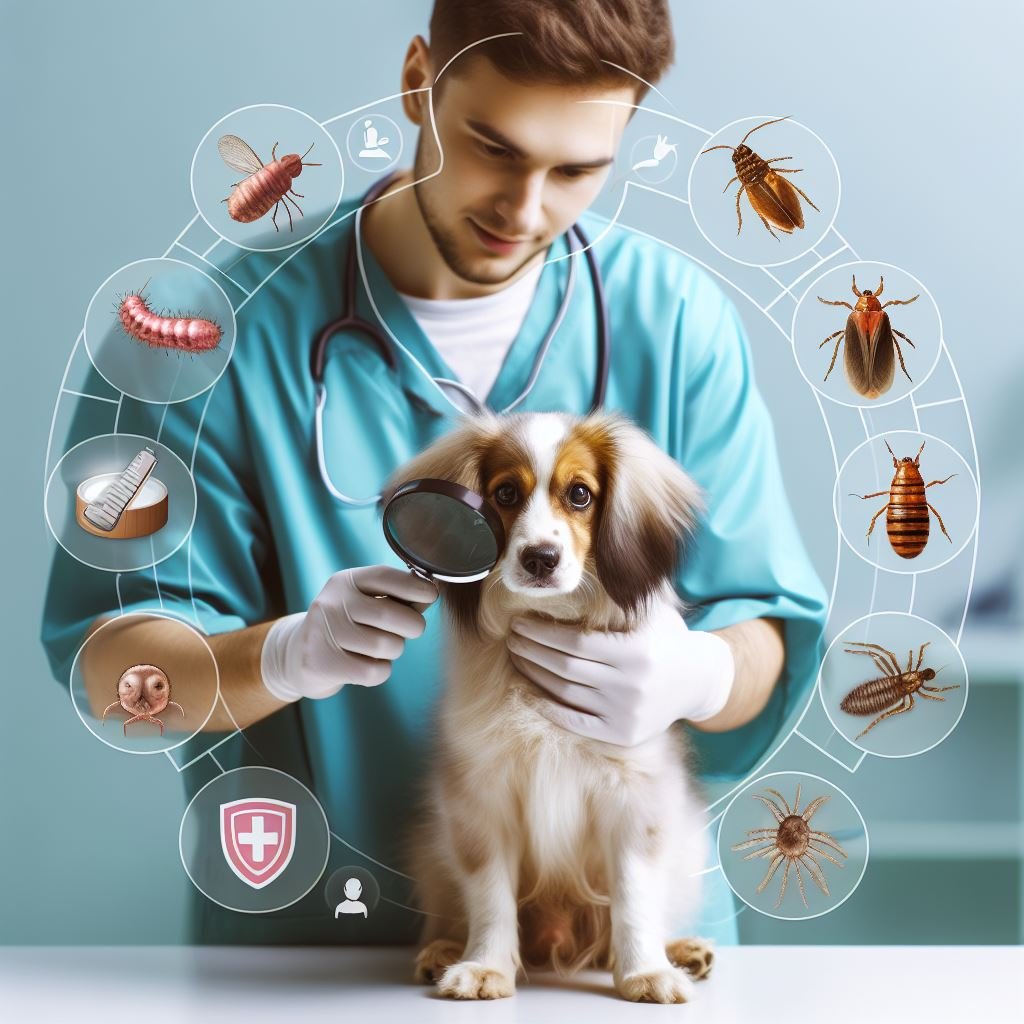Introduction
As a pet owner, it is important to be aware of the common parasites that can affect your furry friends. These parasites can cause a range of health issues and discomfort for your pets. By understanding how to identify, prevent, and treat these parasites, you can ensure the well-being and happiness of your beloved companions.

Identifying Common Parasites
Several types of parasites commonly affect pets, including fleas, ticks, mites, and worms. Here is a brief overview of each:
Fleas
Fleas are small, wingless insects that feed on the blood of animals. They are often found in the fur of pets and can cause itching, irritation, and even allergic reactions. Fleas can also transmit diseases to both pets and humans.
Ticks
Ticks are arachnids that attach themselves to the skin of animals to feed on their blood. They can transmit serious illnesses such as Lyme disease and Rocky Mountain spotted fever. Ticks are commonly found in wooded areas and tall grasses.
Mites
Mites are tiny parasites that can cause skin irritation and itching in pets. Different types of mites affect different areas of the body, such as ear mites and mange mites. Ear mites can cause ear infections, while mange mites can lead to hair loss and skin infections.
Worms
Several types of worms can infect pets, including roundworms, hookworms, and tapeworms. These parasites can cause digestive issues, weight loss, and in severe cases, organ damage. Worms can be transmitted through contaminated soil, food, or infected animals.
Preventing Parasite Infestations
Prevention is key when it comes to protecting your pets from parasites. Here are some effective prevention methods:
Regular Veterinary Check-ups
Regular check-ups with your veterinarian are essential for maintaining your pet’s health. Your vet can perform routine tests to check for parasites and recommend appropriate preventive measures.
Keep Your Pet’s Environment Clean
Regularly clean your pet’s bedding, toys, and living areas to minimize the risk of infestation. Vacuuming your home regularly can also help remove any flea eggs or larvae that may be present.
Use Parasite Preventive Products
Various preventive products are available, such as flea and tick collars, spot-on treatments, and oral medications. Consult with your veterinarian to determine the most suitable preventive products for your pet.
Treating Parasite Infestations
If your pet becomes infested with parasites, prompt treatment is crucial. Here are some common treatment options:
Medications
Your veterinarian may prescribe medications to eliminate the parasites. These medications can come in the form of oral tablets, topical creams, or injections, depending on the type of parasite and the severity of the infestation.
Grooming and Bathing
Regular grooming and bathing can help remove fleas, ticks, and mites from your pet’s fur. Use a pet-friendly shampoo that is specifically designed to treat parasites. Be sure to follow the instructions provided by your veterinarian.
Environmental Treatment
In cases of severe infestations, it may be necessary to treat your pet’s environment as well. This can involve using insecticides or professional pest control services to eliminate parasites from your home and yard.
Conclusion
By being knowledgeable about common parasites, practicing preventive measures, and seeking prompt treatment when necessary, you can protect your pets from the harmful effects of these parasites. Remember to consult with your veterinarian for personalized advice and recommendations. With proper care and attention, you can ensure that your pets live happy, healthy lives, free from the burdens of parasite infestations.
